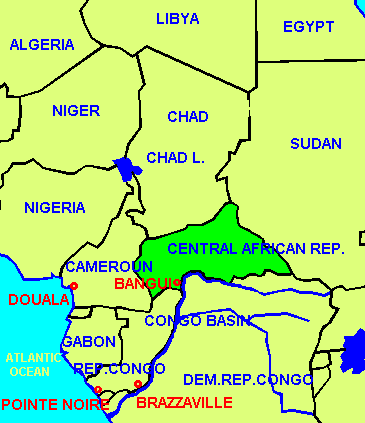

| Year | E v e n t s |
|---|---|
| Around 1750 | Arabs and Europeans start the slave trade |
| 1875 | Put under the rule of Egyptians |
| 1885 | France began to invade the country |
| 1906 | Became a French territory "Oubangui-Chari" |
| 1911 | The Germany occupied a part of the country |
| 1919 | Got back to the French territory |
| 1945 | Boganda founded the Black African Social Labor Party |
| 1957 | Autonomy government is established |
| 1960 | Independence |
| 1965 | Revolution by Colonel Bokassa of the General Headquarters |
| 1977 | Declared as Central African Empire by Emperor Bokassa |
| 1979 | Got back to a Republic |
| 1981 | Kolingba, chief of staff of the National Army, established a military regime by a bloodless coup d'etat |
| 1985 | Got to a civil regime |
| 1986 | The new Constitution was established |
| 1991 | Multi party system is legalized |
| 1994 | Government of Patasse is established by a presidential election |

 
|